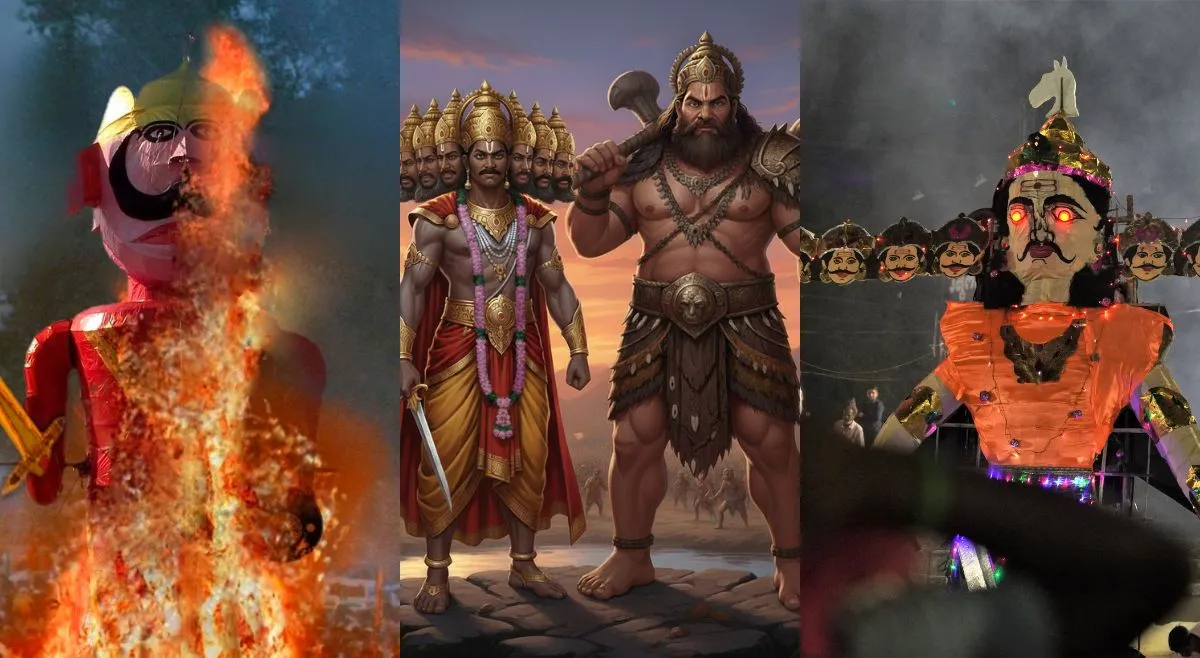- By Ridam Sharma
- Thu, 02 Oct 2025 06:13 PM (IST)
- Source:JND
Kumbhakarna And Ravana Recarnations: India's one of the greatest epics, the Ramayana, is a story that blends cosmology, dharma, and mythic destiny. Its most compelling tale is about the lesser-known tale of Ravana, who was Lanka's great king, and his giant brother Kumbhakarna. To your surprise, these two rakshasa were living the curse. As per Hindu mythology, the two brothers were rebirths of Jaya and Vijaya, the sacred gatekeepers of Lord Vishnu's paradise known as Vaikuntha.
The tale starts when the four Kumaras, Sanaka, Sanandana, Sanatana, and Sanatkumara, wise sages and sons of Brahma by birth, paid a visit to Vaikuntha to have a divine glimpse of Lord Vishnu. But the gatekeepers Jaya and Vijaya prevented them without knowing their high spiritual stature. Enraged by this disturbance, the sages cursed Jaya and Vijaya to be deprived of Vishnu's existence around them and born as mortals on earth.
Deeply upset, Jaya and Vijaya begged Lord Vishnu to free them from the curse. Vishnu then offered them two options: one to be born as virtuous servants of Vishnu for seven lifetimes or as powerful enemies of Vishnu for three lifetimes. Opting for the shorter route, they agreed to be born as Vishnu's enemies.
Also Read: 35+ Captions For Dussehra 2025 To Share On WhatsApp, Facebook And Instagram
It is averred that during the Treta Yuga, Jaya and Vijaya reincarnated as Ravana and Kumbhakarna and their brother Vibhishana and became opponents of Lord Vishnu's incarnation as Rama. Their resistance and subsequent death at the hands of Rama represented the victory of the divine plan. They were reincarnated in different Yugas as Hiranyakashipu and Hiranyaksha to battle Narasimha and Varaha avatars and subsequently as Shishupala and Dantavakra to battle Krishna.
Therefore, the story of Ravana and Kumbhakarna serves to point out how even the enemies of the great epics bear divine significance so that dharma and adharma maintain the eternal equilibrium.
